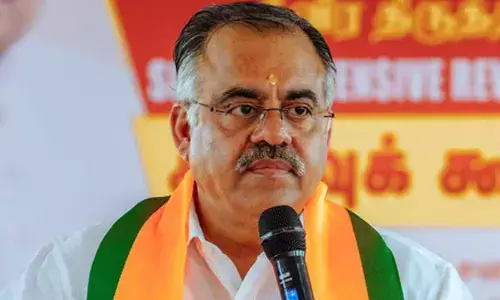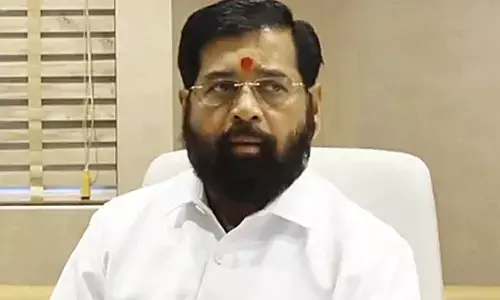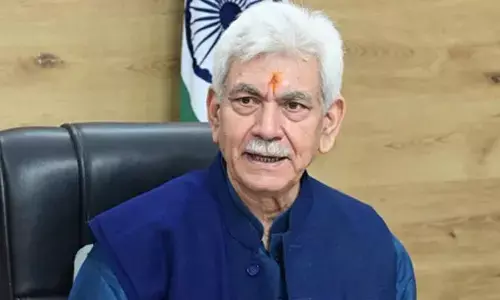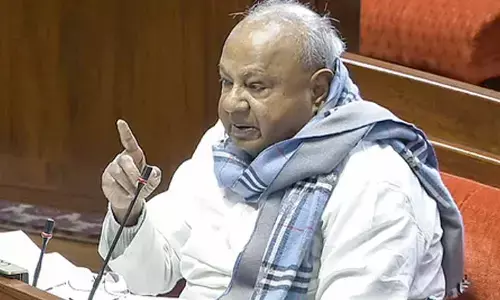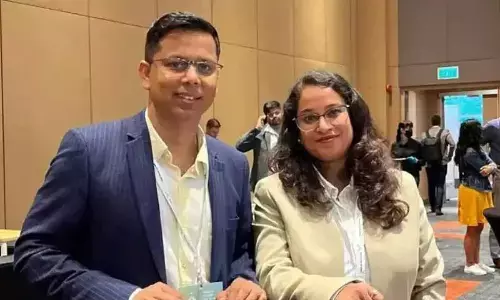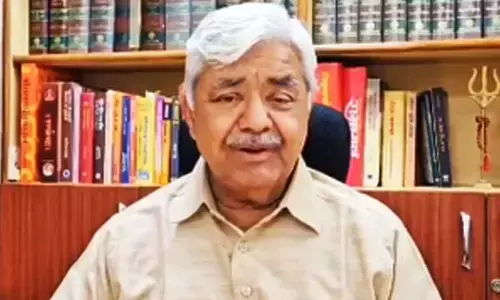Govt apathy chipping away at tribal rights

Despite several enabling legislations that provide Adivasis self-autonomy, prohibit transfer of lands to non-tribals and also recognise their forest land rights, various organs of successive State governments initiated a number of measures that decisively undermine the initiatives of nodal agency – Tribal Welfare Department.
Despite several enabling legislations that provide Adivasis self-autonomy, prohibit transfer of lands to non-tribals and also recognise their forest land rights, various organs of successive State governments initiated a number of measures that decisively undermine the initiatives of nodal agency – Tribal Welfare Department. These acts of sabotage are essentially related to non-implementation of the Land Transfer Regulations 1 of 70, the Panchayats (Extension to Scheduled Areas) Act, 1996, and the Forest Rights Recognition Act 2006.
To undo historic injustice to adivasis, the Indian state enacted the Forest Rights Recognition Act, 2006 (FRA), which recognises and vests diverse pre-existing rights over forest land. But it is made ineffectual by grant of Community Forest Rights (CFR) to Vana Samrakshana Samithis (VSSs), instead of Gram Sabhas, despite them being declared illegal by the Union Ministry of Tribal Affairs.
Girijan Co-Operative Corporation (GCC) exercises monopoly over non-timber forest products (NTFPs). Governments continue to refuse to recognise habitat rights of the Particularly Vulnerable Tribal Groups and are responsible for non-conversion of forest/unsurveyed villages into revenue villages etc.
The FRA recognises the rights of adivasis over the non-timber forests products including bamboo. No doubt, the AP government has laid more emphasis on individual forest land rights, but ignores community rights and community forest resources rights of adivasis. According to a study, the minimum available potential for Community Forest Resources in AP is estimated to be 35.01 lakhs acre.
The Gram Sabha has legal jurisdiction over this chunk of forest lands for its management and protection. However, the government distributed forest land pattas to 85,678 individuals over 2 lakh acres. In fact ensuring the rights of adivasis over the NTFP and provision for adequate market interventions for all NTFP products is the need of the hour. Such a step would help increase employment and income generation at local levels to poverty-stricken adivasis.
The historical and legal perspective is that land in the Scheduled Area belongs to the tribals. Until and unless the contrary is proved, the land in occupation by non-tribals shall be deemed to have come through a transfer from tribals as per the Land Transfer Regulations (LTRs) (Amended) 1 of 1970. Although LTRs 1 of 1970 have been in force, its implementation has been rather poor. Survey and Settlement Department has granted settlement pattas in favour of non-tribals in violations of LTRs.
Such lands have not been restored to the tribals even by the officials empowered to do so. Politics and external drivers have undermined the objective of Fifth Schedule of the Constitution, which protects land rights of tribals. Yet another threat is intrusion of non-tribals into the Scheduled Areas, which continues unchecked, changing the very character of the Scheduled Areas.
Another major concern is large-scale displacement of tribals by projects like Polavaram and their settlement in other tribal areas, which often result in inter-tribal conflicts. This can be avoided by converting non-Scheduled Areas into Scheduled Areas for rehabilitation and resettlement purposes. The eminent domain based laws recognise individual ownership, but ignore community rights over common resources which are basic to their livelihood.
The tribals cannot claim ownership on community resources even if they have lived on them for centuries before the colonial laws were enacted, and cannot seek legal compensation on par with private lands. It is the major causation for unrest among the project-affected tribals. Its result is impoverishment and marginalisation of project-displaced tribals.
Political parties are disinterested in ensuring the realisation of dreams of adivasis for their self-governance as envisaged under the Panchayats Extension to Scheduled Areas (PESA) Act 1996. The self-determination is a recognised right of indigenous peoples as well as their rights over resources. The Indigenous Peoples Day being observed on August 9 is intended to remind the state of its obligations in implementing special constitutional provisions for the overall uplift of the tribals.
By Dr Palla Trinadha Rao








